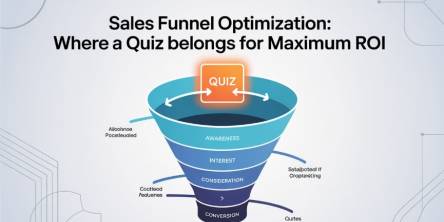Top Reasons Why EHR and Medical Billing System Integration is Critical

One of the most vital aspects of running a health care institution is medical billing. Unfortunately, this process, wherein one collects all the data about the services rendered, costs, engaging with insurance providers, and more, can prove to be quite cumbersome. Thankfully, the industry has found a robust solution to tend to the many challenges posed by medical billing - EHR (Electronic Health Record) systems.

What EHR solutions do is bring all the many processes that such an institution has to undertake repeatedly. So, all that documentation for billing? That’s not only brought under one unified platform but also automated; thus saving health care companies a lot of time and effort but also significantly lowering the risk involved. But those are not the only benefits EHR has to offer to the industry. Check out some of the most critical ways in which such systems deliver all-encompassing benefits to organizations in this sector.
- Enhance efficiency: Medical billing is not only cumbersome but also very time-consuming, which, in turn, translates into high levels of inefficiency across the company. However, integrating EHR with other company systems, especially medical billing, means the staff doesn’t have to spend nearly as much time and effort in merely filling in forms to accumulate the requisite data. Furthermore, such tools also help medical services companies cut down the human error, thus boosting efficiency across the board.
- Better interoperability: Another significant benefit of bringing together other organizational solutions with EHR is the interoperability. It means that the EHR can gather data from all other systems plugged into it and then make it available to appropriate and relevant teams as and when required. Besides the ease of access and the implied security, companies also gain the ability to correctly analyze and decipher their data and then use it to help drive informed decisions across all departments.
- Transparency in processes: Since EHS data eases access, for both the care providers as well as patients, it becomes simple to keep an eye on such data, including health care services delivered, their costs, claim status, and payment status among so many other things. When patients can access such data, all scope for distrust and confusion is immediately eliminated. And as for the company’s internal processes, EHR systems bring transparency to the workflow as well, and that, in turn, facilitates the identification of issues, if at all, and then tend to them in a relevant manner.
- Cut down data entry mistakes: As mentioned above, EHR systems gather all the data in one place and then share it with the requisite arrangements. It not only saves much manual effort but also reduces the scope of error while entering data in multiple forms, systems, and more. Furthermore, the sanctity of the data collected under EHR then also helps quicker and fuss-free billing.
- Improved consolidation: Yet another vital benefit of an integrated EHR system, i.e., besides interoperability, transparency, and more, is that it helps smoothen out any issues in the context of internal workflows. Here’s how: Staff doesn’t have to enter the same data multiple times, look for different bits of information in different systems, or be subjected to any similar mundane tasks. And not only that, the consolidation of data also makes it easier for companies to deal with claims in a much more productive fashion
If you are looking to achieve all the benefits mentioned above as well as plenty of others, such as substantially improved quality of patient care, reduced paperwork, and more, suffice it to say that the best way forward is to hire a reliable service provider for custom EHR software development.
Similar Articles
In 2026, Microsoft Excel continues to power the U.S. business ecosystem, supporting over 80% of financial modeling, 70% of operational reporting, and nearly 65% of analyst-driven decision workflows across enterprises.
The rapidly growing volume and speed of digital transactions have had a whole lot of implications for businesses
We live in the age of cloud computing. That's plain to see. However, what may escape many are the operational and financial challenges of managing multiple independent clusters.
Times have changed and how! Take modern technology and the fast-paced digital economy, it is driving. Given the market conditions, any company's infrastructure has become more than just a technical detail.
It has been for everyone to see that the modern digital economy is distinguished by high volume, real-time financial transactions.
Business success has become reliant on efficiency and agility of the underlying technology infrastructure. Clearly, companies now depend on cloud computing to provide seamless services while managing exponential data growth.
Hospitals operate in environments where availability and patient safety are paramount at all times. As medical supply chains expand and regulatory oversight becomes more demanding, manual tracking methods introduce delays and risk.
Every sales funnel has one core goal: turn attention into revenue as efficiently as possible. Yet many funnels leak value at critical stages—visitors bounce, leads go cold, and sales teams chase prospects who were never a good fit.
Decentralized Finance (DeFi) has transformed how users earn passive income through blockchain-based financial systems. Among its most popular use cases,









